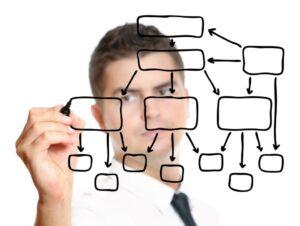Learning is the process through which individuals acquire new knowledge, skills, behaviors, and attitudes. It is a fundamental aspect of human life and plays a critical role in personal growth, cognitive development, and adaptation to new experiences and environments. Learning can occur through various means, such as formal education, self-directed study, observation, social interaction, and experiential learning.
There are numerous theories and models that explain how learning takes place, including behaviorism, cognitive constructivism, and social constructivism. These theories emphasize different aspects of learning, such as the role of reinforcement, internal mental processes, and social interactions in shaping an individual's understanding and abilities.
Effective learning strategies include setting clear and specific goals, engaging in active learning, seeking feedback, and applying metacognitive techniques, such as self-reflection and self-assessment. By understanding and leveraging individual learning styles and preferences, individuals can optimize their learning experiences and achieve greater success in both academic and professional settings.
Learning
There are several types of learning, including:
Explicit learning: The acquisition of knowledge or skills through direct instruction or formal education.
Implicit learning: The unconscious and automatic acquisition of knowledge or skills through exposure, observation, or practice.
Experiential learning: Learning through direct experience, reflection, and application of knowledge or skills in real-life situations.
Social learning: The acquisition of knowledge, skills, or behaviors through observation, imitation, or interaction with others.
To improve your learning abilities, consider implementing the following strategies:
Set clear, specific, and realistic goals for your learning.
Engage in active learning by asking questions, participating in discussions, and seeking out opportunities to apply new knowledge or skills.
Use a variety of learning resources and techniques, such as videos, articles, podcasts, and hands-on activities, to accommodate your learning preferences.
Seek feedback from peers, mentors, or instructors to identify areas for improvement and guide your learning process.
Practice metacognitive techniques, such as self-reflection and self-assessment, to evaluate your understanding and progress.
Motivation plays a crucial role in learning, as it influences an individual's level of engagement, persistence, and overall success in the learning process. Intrinsic motivation, which refers to the internal drive to learn for personal satisfaction or interest, has been linked to more effective learning outcomes, as it promotes deeper understanding, better retention, and greater enjoyment of the learning process. To enhance motivation, focus on setting meaningful and personally relevant goals, cultivating a growth mindset, and seeking out learning experiences that align with your interests and values.
Related Semantic Entities for Learning











